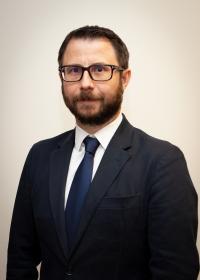
Theology and education for ministry are not simply academic pursuits. They involve the entire person, not just the intellect. At St. Vladimir's, academic study is important, just as it is at any institution of higher learning. But an Orthodox theological education is more than that. Indeed, there are several interrelated components to a theological education that are necessary to train future leaders and servants of the Church. Yet before these can even be identified, we must acknowledge a fundamental reality: there is no formula for what it takes to train a successful and faithful minister of the Church. Not all good pastors are brilliant academicians. Not all church leaders are great orators. Not all ministers are superb liturgical celebrants. Still, this does not mean that any of these skills can be dispensed with. Rather, they all play a complementary role in the cultivation of pastors, educators, and leaders in the Church, even if the degree to which these skills take root will vary considerably depending on the student.
What constitutes effective training—or better—what are the components of a genuine Orthodox theological education for the formation of ministers of the Church?
-
An Orthodox theological education includes serious academic study. A high standard of academic learning, which includes skills in reading, analysis, writing, and speaking, is a vital component in the formation of effective ministers for the Church. To preach, to teach, effectively communicating the gospel, requires substantial knowledge of content as well as analytical skills to understand and convey that content to others.
-
An Orthodox theological education includes training in service and ministry to others. At St. Vladimir’s this training takes many forms, including field education in prison, hospital, and parish ministries. In day-to-day life at the seminary, it also takes the form of community service assignments. It is easy to talk about the virtues of humility, patience, kindness, and self-control. Community service assignments give an opportunity to put these virtues—and many others—into practice. One graduate, in his valedictory address, remarked with appreciation that he learned as much working on the breakfast crew as he did in his classes. As comments from other alumni indicate, his was not an isolated experience.
-
An Orthodox theological education also includes prayer, and in fact it must be grounded in prayer. We are all familiar with the maxim of the Desert Fathers: “The theologian is one who prays, and the one who prays is theologian.” A personal rule of prayer is vitally important, but prayer is not meant to be a solitary spiritual “trip” pursued in isolation. Whether personal or corporate, prayer means joining ourselves to Christ’s prayer, to the Church’s prayer. Hence, at the seminary, the focal point of our life of prayer is communal worship in the seminary chapel, following the Church’s daily and annual liturgical cycles.
An Orthodox theological education, in summary, is far more encompassing and far more demanding than that offered in a typical institution of higher learning. Members of the seminary community—faculty, staff, and students alike—are challenged to respect and value each member of our richly diverse community as a unique human person, created in the image and likeness of God. They are challenged to love not just humanity in general but all those flesh-and-blood sisters and brothers whom they meet in daily life, with all their strengths and weaknesses, with all their idiosyncrasies, with all their sometimes hidden charm. At St. Vladimir’s, the rich diversity of our community—men and women studying in various programs, coming from many continents, with a wide range of experiences and interests, talents and goals—places unique demands on all of us. It also offers us unique opportunities for Christian growth.
Here at St. Vladimir’s Seminary, we are daily being formed by God’s Word, through the power of His Spirit, to be a Christian community, to be the living body of Christ. We are trained in obedience and in leadership. We learn how to forgive and how to ask for forgiveness. We discover when to listen and when to speak (preferably calmly and with love). We share our strengths rather than boast in them. We recognize our weaknesses, and we allow God to bring strength out of weakness. In the classroom, we learn what Scripture says about love and how the Fathers have defined it. In every aspect of our life together, we try to show love in action. This understanding of theological education informs all the work of St. Vladimir’s Seminary.
Read an overview of our degree programs